Shabbat January 13-14, 2023 | 21 Tevet 5783
Rabbi Elaine S. Zecher
Cantor Alicia Stillman
Rabbi Suzie Jacobson
Rabbi Dan Slipakoff
Rabbi Andrew Oberstein
Rabbi Ronne Friedman
Rabbi Emeritus
Rabbi Bernard H. Mehlman
Senior Scholar
Cantor Roy B. Einhorn
Cantor Emeritus
Dan Deutsch Executive Director
Laurence Bailen, MD Board President
Amy
Bolotin FJECC Preschool Director
If you would like information on becoming a member of Temple Israel, or if you are a current member whose contact information has changed, please contact Emma Savitz at esavitz@tisrael.org.

Please turn off cell phones during services.
Video recording is not permitted. Thank you.
Welcome to Temple Israel of Boston
Living Judaism Together
Torah Portion Shemot Exodus 1:1-6:1
Haftarah Portion Isaiah 27:6-28:13, 29:22-23
Temple Israel Welcomes Tanisha M. Sullivan, President of the Boston Branch of the NAACP
Tanisha M. Sullivan is the President of the Boston branch of the NAACP, leading the organization in its fight for racial, economic, and social justice with a data-driven and solutions-oriented framework. In this volunteer leadership role, Sullivan has led efforts to build a more inclusive democracy and improve quality of life for all Massachusetts residents. She is a seasoned corporate lawyer, has over 25 years of experience in the life sciences industry, and served as the inaugural Chief Equity Officer for the Boston Public Schools. Boston-born, Sullivan earned a bachelor’s degree in government from the University of Virginia, and an MBA and JD from Boston College. In 2022, she ran for Secretary of State in Massachusetts.
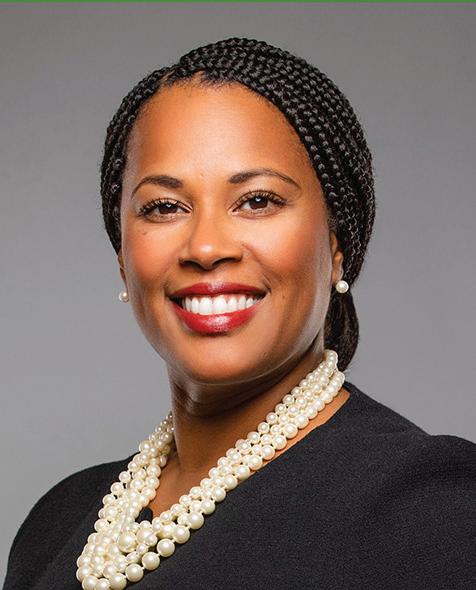
Friday, January 13
6:00 p.m. Qabbalat Shabbat (onsite and online). We celebrate the values of Rev. Dr. Martin Luther King Jr. with honored guest Tanisha M. Sullivan. This service is open to people of all faiths.
Saturday, January 14
9:00 a.m. Shabbat Tzedek Morning Service and Torah Study, followed by Racial Equity, Diversity, and Inclusion (REDI) Conversations and Lunch. Gather with us (onsite and online) at 9:00 a.m. for an engaging T’filah and Torah Study steeped in our REDI work. Our Shabbat morning continues with REDI Conversations (onsite) at 10:00 a.m., an opportunity to learn about yourself and connect to community members on a deeper level. Lunch is catered by local Black-owned restaurants.
5:30 p.m. Riverway (20s/30s) Shabbat Tzedek Havdalah, Dinner, and REDI Conversation (onsite) exploring the identities we each hold, Temple Israel’s norms and values, and ways we can incorporate
those values into all that we do as a community of justice minded folks. Please register.
7:30 p.m. Havdalah and Musical Gathering: SingAlong Songfest for Peace, Justice, and Freedom (online). Celebrating Shabbat Tzedek with our clergy and community, we carry the musical banner for tzedek (righteousness) raising our voices together in story and song in the pursuit of peace, justice, and freedom for all.
Sunday, January 15
9:00 a.m. Service with Bethel AME Church Honoring Martin Luther King Jr. (offsite). Join us and our neighbors at Bethel AME Church, 38 Walk Hill Street, Jamaica Plain, for a Sunday worship and Martin Luther King Jr. commemoration, with a joint sermon by Rabbi Dan Slipakoff and Reverend Carrington Moore.
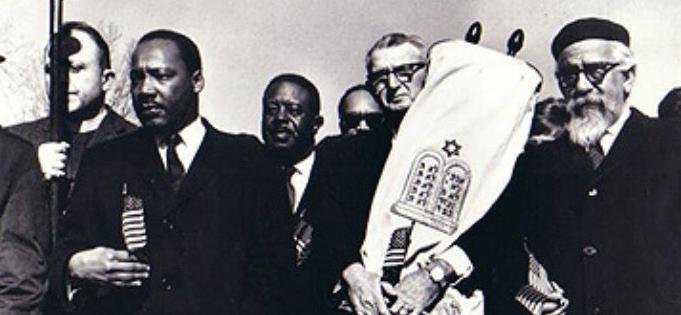
Monday, January 16
7:00 p.m. Riverway (20s/30s) Online Direct Service Opportunity with Repair the World and Hunger Free America. Please register.
Find more information and links to online opportunities on our website: www.tisrael.org
2
Dr. Martin Luther King Jr. marching with Maurice Eisendrath (center), President of the UAHC (now the URJ), and Abraham Joshua Heschel (right).
Shabbat Tzedek: A Sabbath Of Justice with Tanisha M. Sullivan, President of the Boston Branch of the NAACP, and Dr. Martin Luther King Jr. Weekend of Justice Encounters
Shabbat Tzedek Service
Honoring Dr. Martin Luther King Jr.
The service will be led by Rabbi Elaine Zecher, Cantor Alicia Stillman, Rabbi Suzie Jacobson, Rabbi Andrew Oberstein, and Rabbi Dan Slipakoff and accompanied by the Temple Israel Band.
Youth Perspectives
Ben Wilkinson and Johan Perez-Lemus (Beacon Academy)
Hannah Sender and Maya Seide (Temple Israel of Boston)
Introductions
Rabbi Elaine Zecher, Senior Rabbi of Temple Israel of Boston
Speaker
Tanisha M. Sullivan, President of the Boston branch of the NAACP
Announcements
Laurence Bailen, Board President of Temple Israel of Boston
The Life of Rev. Dr. Martin Luther King Jr.
Martin Luther King, Jr. — the son, grandson, and great-grandson of Baptist ministers — was born on January 15, 1929. King studied at Morehouse College, Crozer Theological Seminary, and Boston University, where he deepened his understanding of theological scholarship and explored Mahatma Gandhi’s nonviolent strategy for social change.
King married Coretta Scott in 1953. Following on the success of bus boycotts in Montgomery, King and other Southern black ministers founded the Southern Christian Leadership Conference (SCLC) in 1957. In 1959, he became co-pastor of Ebenezer Baptist Church with his father.
In the early 1960s, King and SCLC began to organize non-violent demonstrations, leading to the Birmingham civil rights protests. Mass demonstrations culminated in the March on Washington for Jobs and Freedom in August 1963, in which more than 200,000 protesters gathered, and where King delivered his famous “I Have a Dream” speech on the steps of the Lincoln Memorial. The demonstrations prompted President John F. Kennedy to submit broad civil rights legislation to Congress, which ultimately led to the passage of the Civil Rights Act of 1964.
King’s renown continued to grow as he was named TIME Magazine’s “Man of the Year” in 1963 and was the recipient of the Nobel Peace Prize in 1964. In April 1965, Dr. King preached at a Passover service here at Temple Israel.
Along with fame and accolades came increasing resistance on several fronts. On April 4, 1968, Rev. King was assassinated. Rev. King’s life and legacy continue to inspire our community’s pursuit of justice.
3
TIKKUN CENTRAL: The Heart of
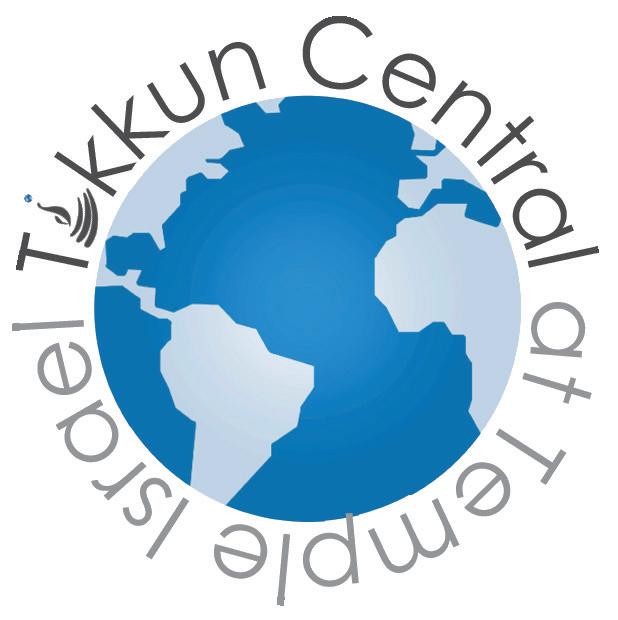
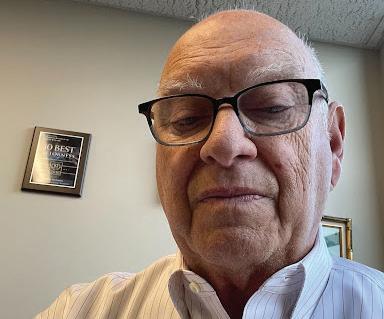
“What does Tzedek (justice) mean to you?”
“Tzedek means equity, social, and cultural capital needed to navigate this world so that at a minimum basic needs are met. It means not feeling weird about responding to this, thinking about how I will be perceived as a BIPOC (Black, Indigenous, and People of Color) female in a pamphlet going out to a majority white audience. I don’t entirely feel psychologically safe (trust) enough to do this yet. But I’m willing to since, well, someone has to, right? ”
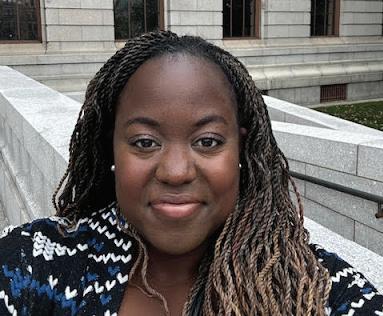 — Leah Ben-Ami
— Leah Ben-Ami
“To me, tzedek means far more than the literal translation “justice.” Tzedek is the imperative to act affirmatively to confront injustice; to increase awareness and sensitivity; to embrace differences; and to be open, vulnerable, and strong in doing the work to make my congregation a model of righteousness.”
— Barry Weisman
4
Righteous Impact at Temple Israel
Tikkun Central is our community’s efforts toward righteous impact. Learn about our current initiatives and our Temple-wide Racial Equity, Diversity, and Inclusion culture shift:
• Afghan Resettlement
• Greater Boston Interfaith Organization
• Immigrant Justice
• Environmental Justice
• TI Cares
• Racial Justice Initiative
• Reproductive Justice
“Tzedek means working to try to build the world that we all hope to live in. For me, this takes place while working with a group of committed TI members to find decent and affordable shelter for the Akbari Nooristani family that Temple Israel’s Afghan resettlement program is supporting.“
— Adam Goldstein
For more information, please contact:
Rabbi Dan Slipakoff (dslipakoff@tisrael.org)
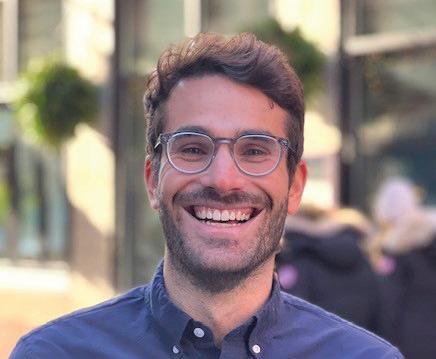
Tali Puterman (tputerman@tisrael.org), Director of Racial Equity, Diversity, Inclusion & Justice Organizing
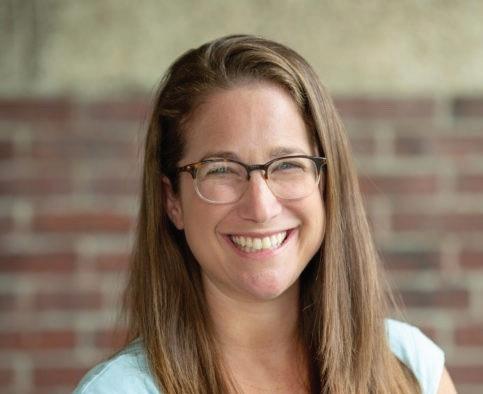
Susan Michaels (susanpmichaels@gmail.com), Tikkun Central Co-Chair
Andy Lesser Gonzalez (alessergonzalez@gmail.com), Tikkun Central Co-Chair
“
Tzedek means that the quality of your education is not dependent on what neighborhood you live in or what your zip code is. It means that all students are provided with the kind of education that creates a love of learning and opens up the options and opportunities that they deserve.”
— Courtney Swartz
5
“Keep the Flames Burning Bright”
by Rabbi Dan Slipakoff Temple Israel of Boston
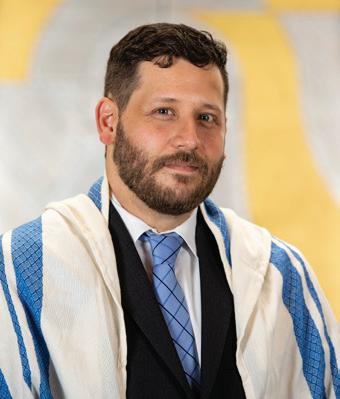
Above every ark in every synagogue, there hangs an Eternal Light. The ner tamid, as it is called in Hebrew, represents God’s enduring presence in the life of the synagogue community. The ner tamid hearkens back to the fire upon the altar of the biblical tabernacle. The ancient priests were commanded to tend the flame constantly and keep it burning perpetually.
This week we begin reading the biblical book of Exodus. Our text opens in the land of Egypt as Jacob and his extended family arrive seeking safeguard from famine at the invitation of Jacob’s son Joseph, who has risen to power in the kingdom of Pharaoh. Though Jacob and the generation of his sons passes on, their descendants are fertile and prolific in their new home.
But this apparent success story pivots dramatically in one swift verse: ףסוי תא עדי אל רשא םירצמ לע שדח ךלמ םקיו
But a new king arose over Egypt who did not know Joseph. (Exodus 1:8)
The same symbol stands witness at the grave site of Dr. Martin Luther King Jr. There, the ever-burning torch is accompanied by a commemorative plaque which reads:

The Eternal Flame symbolizes the continuing effort to realize Dr. King’s ideals for the “Beloved Community’ which requires lasting personal commitment that cannot weaken when faced with obstacles.
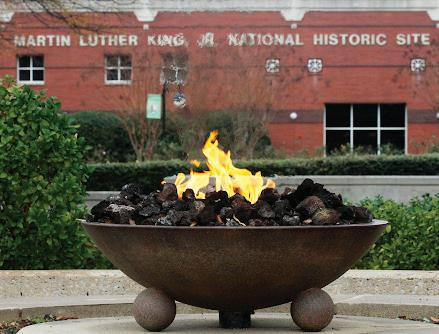
Have we done enough to sustain the ideals of our Beloved Community?
How have our personal commitments fared in the face of life’s many obstacles?
Out of fear of uprising, the new Pharaoh sought control over the Israelites through enslavement and the murder of all newborn male children. This extreme and violent behavior from Pharaoh is vilified in the text and throughout history. But there is something strange about the verse above that almost implies that Pharaoh’s cruelty may have been avoided had he only known about the legacy of Joseph. The text could have continued on to the next verse without the last phrase, but the inclusion of a lost relationship gives me pause. Could it be that the Israelites forgot about Joseph as well? Could they have lost sight of the story of a slave and prisoner who based on his dreams, merit, and wisdom rose
6
through the ranks to work side by side with the mightiest monarchs in order to save a nation?
We can see the parallels between Joseph and Dr. King, two of our most acclaimed dreamers. As we gather this evening, we think both about preserving connections to important visionaries of the past, and also about the need for renewed relationships and efforts in our present day.
Too often our world feels bereft of the teachings of Dr. King. King’s emphases on love, equity, and partnership feel unfamiliar or rejected by some of the modern-day Pharaohs who oppress our Beloved Communities.
How can we in this moment take responsibility for carrying the vision of Dr. King forward? As we preach the promise of a better world, what are the steps we take to secure it, not in some far off future, but today? As Dr. King shared on the steps of the Lincoln Memorial: “We are now faced with the fact that tomorrow is today. We are confronted with the fierce urgency of now… This is no time for apathy or complacency. This is a time for vigorous and positive action.”
If not now, when? The action needed in this moment can take many forms. One of those is the emphasis on building relationships and coalitions. As we quote in the names of our justice giants, we also know the importance of making a name and leaving an impact ourselves, continuing along the path which our predecessors began to blaze.
It is an honor to share this Shabbat with you. May our righteous flame burn as a beacon in even the darkest night, an emblem of our unceasing commitment to love, justice, and one another.
Upcoming Events
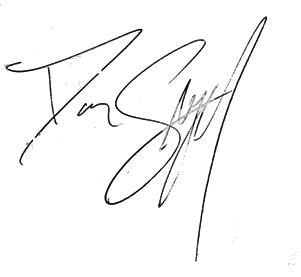
How Jewish Congregations Can Invest in a Just, Livable Future
Thursday, January 19, 8:30 p.m. Online. By aligning our institutions’ investments with our Jewish values — leaving fossil fuels behind and instead investing in clean energy — we can ensure a just and livable world for all, for generations to come. Join Dayenu for a strategy call as they launch a new grassroots effort to leverage the power of communities, congregations, and organizations to lead the way to a fossil free future. Email Tali Puterman at tputerman@tisrael.org.

Partakers: College Behind Bars Info Session Tuesday, January 24, 6:30 p.m. Onsite. Partakers Founding Director, Arthur Bembury, and active Temple Israel Partakers mentors discuss what it takes to serve as a College Behind Bars Mentor and the rewards to be gained. Visit www.tisrael.org or contact Jen Grella at jgrellamom@gmail.com to learn more and join us.
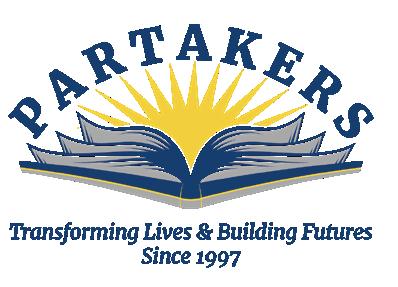
HIAS Refugee Shabbat Torah Study Saturday, February 4, 9:00 a.m. Mixed Presence. Refugee Shabbat is a moment for congregations, organizations, and individuals around the world to dedicate a Shabbat experience to refugees and asylum seekers. Our Torah Study this Shabbat morning will engage in these critical themes alongside our Temple Israel Immigrant Justice Team and guest speakers and storytellers.
See the full list of upcoming programs at www.tisrael.org/calendar
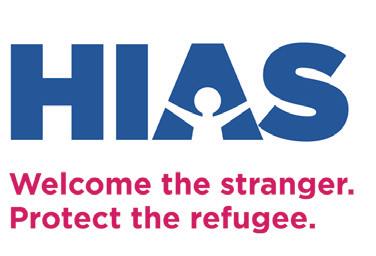
7
Song Sheet: Shabbat Tzedek 2023
Hinei Ma Tov
Hinei ma tov u’manaim shevet achim gam yachad. How good it is to be together with our brothers and sisters.
Let Us Sing Unto God
L’chu neranena l’Adonai, naria l’tzur yisheinu.
N’kadmah fanav b’todah, bizmirot naria lo.
Let us sing unto God, sing unto God a new song.
Shema / V’ahavta
Shema Yisrael Adonai Eloheinu Adonai Echad.
Baruch sheim k’vod, malchuto l’olam vaed.
You shall love Adonai your God with all your heart, With all your soul, and with all your might, v’ahavta.
Set these words, oh, these words, oh, these sweet precious words, set them on your heart.
You shall love, you shall love, you shall love your God.
Praying With Our Feet / Mi Chamocha
Step by step, mile by mile.
We’re not there yet; it’s gonna take a while.
Block by block and street by street, the path of justice is not complete.
Hill by hill, through the vale, though shadows fall, light will prevail.
Through pain and tears and through rain and snow, to the mountaintop we go.
We’ll be prayin’ with our feet, prayin’ with our feet, we’ll be prayin’ with our feet.
We’ll be prayin’ with our feet, prayin’ with our feet, we’ll be prayin’ with our feet.
Hand in hand, arm in arm, When we march together, we march strong. Bridge by bridge and town by town, Like a rollin’ train that won’t slow down. We’ll be prayin’ with our feet, prayin’ with our feet, we’ll be prayin’ with our feet.
We’ll be prayin’ with our feet, til the work’s complete, we’ll be prayin’ with our feet.
Mi chamocha baeilim, Adonai?
Mi kamocha nedar bakodesh, Nora t’hilot, oseh feleh?
Adonai yimloch l’olam vaed! (6x)
Let There Be Love
Let there be love and understanding among us, Let peace and friendship be our shelter in life’s storms.
This Little Light of Mine
This little light of mine
I’m going to let it shine.
Oh, this little light of mine
I’m going to let it shine.
477 Longwood Avenue, Boston, MA | 617-566-3960 | www.tisrael.org
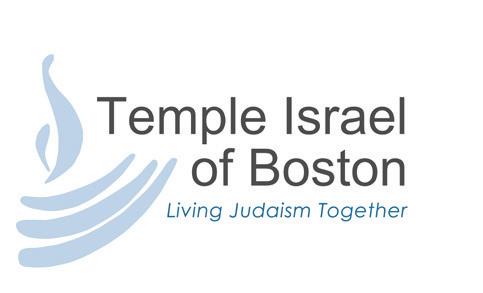
8






 — Leah Ben-Ami
— Leah Ben-Ami









